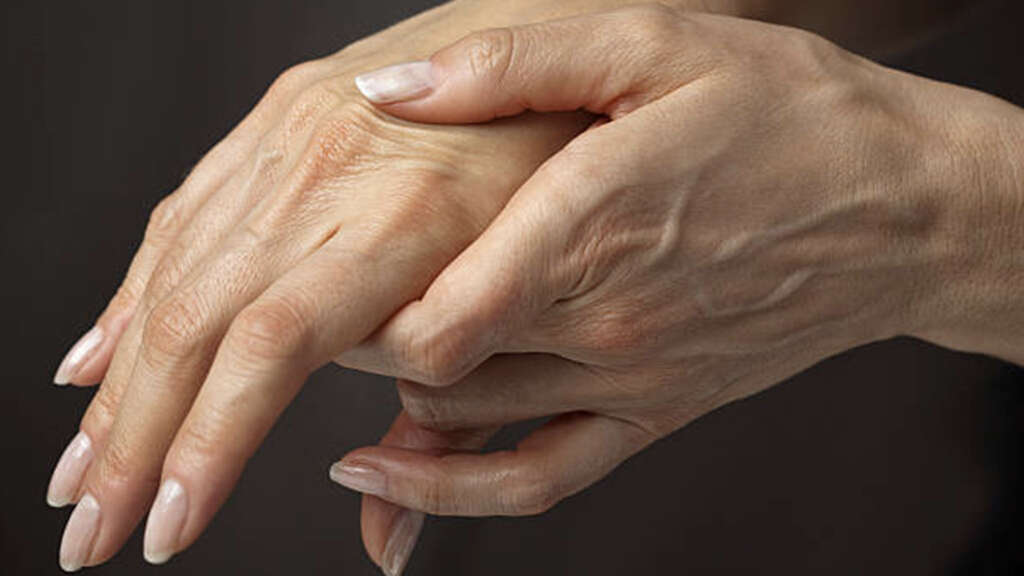10 Symptoms of Parasites In Humans
There is a vast range of living organisms on our planet. Each species has evolved to live in a certain way, feeding on certain foods and living in certain dwellings. Predatory animals manage to survive by feeding on other animals, but some animals live of others in a different way.
Parasites are organisms that use other organisms as a host. They can sometimes feed directly from their host, while sometimes they will feed by stealing food and other resources from their host.
Some of these parasites will live in people if given the opportunity, and they can cause some very unwelcome symptoms, some of which are discussed below.

Symptom #1: Weight Loss
There was a time when people used to be able to purchase weight loss medication that was actually the eggs of intestinal worms. Once ingested, the worms would begin to grow, consuming a lot of calories on your behalf. This probably seemed like a great idea at the time, but we have since learned that this can be very unhealthy for us.
Losing too much weight too quickly can be very bad for your health. If you are suddenly dropping weight and you don’t know why, it could be that you have intestinal worms. Regardless of the suspected cause, sudden weight loss is something that you should get checked out by a doctor.

Symptom #2: Fever
Fever is a very common symptom associated with parasitic infections. It is a non-specific symptom but nevertheless, it is a useful marker to signal an infection.
Among the most important fever-causing parasites are the plasmodium genre, which causes Malaria. It is quite distinctive from other fever-causing agents because it has a periodic pattern depending on the plasmodium species that is colonizing the host.

Symptom #3: Fatigue
A lot of the food that we eat is packed with energy. We use this energy through a system of chemical processes that we know as the metabolism. If we eat more food, then we take on more energy, and any energy that is not used is stored in the body for later as fat.
If we have intestinal worms, though, then they will also be taking in a lot of the energy from our food. This means less energy for us and we can be left feeling fatigued as a result. Parasites can also play havoc with the body’s chemical balances, and this can also lead to fatigue.

Symptom #4: Bloating
While we may feel bloated after a large meal sometimes, it is not something that should last for long. It tends to be caused by having too much food in the stomach, while bloating can also be caused by various gases. If you are feeling bloated even some time after you last ate, it might be because you have parasites.
Intestinal worms are one potential cause for bloating. They can also cause considerable flatulence, which could be quite embarrassing for the patient. People with parasites will also sometimes experience abdominal pain. If the symptom is lingering or if it is too severe, you should get it checked out.

Symptom #5: Diarrhea
Diarrhea is one of those unpleasant symptoms that you might feel embarrassed telling other people about. It can be unpleasant and it can leave you not wanting to leave the house in case you have a problem and there is no bathroom nearby. It can be caused by a wide range of causes, including parasites.
Patients with parasites will often find that they get diarrhea. The parasites can irritate the stomach lining, causing food to pass through the digestive system faster than usual. Diarrhea is not usually a dangerous condition, but people who are weak should be monitored closely because it can lead to serious problem.

Symptom #6: Stool Changes
Many parasitic infections will have a preference for the gastrointestinal tract. And some of them will cause a distinctive sign to help us diagnose the condition.
Patients suffering from Giardiasis may develop steatosis (excess fat on their stools), which causes their stools to float in the toilet. Other parasitic conditions may cause blood to appear in the stools. If you notice a change in your stools, you should seek medical attention for proper diagnosis.

Symptom #7: Vaginal Discharge
There are numerous types of sexually transmitted pathogens out there. As such, it makes sense that we should try and be sensible in regard to who we have sex with and whether we use protection. Some are quite common, though, and even people that are careful are not completely safe.
Trichomonas vaginalis is one type of sexually transmitted disease that involves a parasite. Symptoms include a yellow/green discharge that has a distinct odor of fish. It can also cause pain during sex and the genitals can also become very sore. You should see a medical professional if you are experiencing these symptoms.

Symptom #8: Rashes
When we get a rash, it is usually quite easy to just put it down to something harmless. Maybe we have just been in contact with something irritating? Maybe it’s something to do with our clothing? Regardless, rashes are not things that you should always overlook so easily.
If you do have an unexplained rash, it could be caused by a parasite. One fairly common rash caused by a parasite is known as swimmer’s itch. This is caused by a tiny parasite that digs into the skin, potentially causing an allergic reaction. The rash in this instance should not last for too long.

Symptom #9: Nausea
This is a non-specific symptom associated with many intestinal parasitic infections such as Strongyloidiasis and Amebiasis to name a few.
Nausea can lead to vomiting in some cases, which can cause the patient to become dehydrated. If you are experiencing this symptom in association with other symptoms related to a parasitic infection, you should seek medical attention for proper diagnosis and treatment.

Symptom #10: Difficulty Breathing
There are numerous types of parasite that can infect humans and they can infect different parts of the body. They are often found in the digestive system where they feast on the food that we eat. Some parasites, however, prefer to make their home in our lungs.
Paragonimiasis, also known as the flatworm, is a type of parasitic worm that is found living in our lungs. They can stay here for years, thriving and breeding, until their numbers become so large that they affect the proper functioning of our lungs. This can make it difficult to breathe, and this is something that needs to be addressed.











